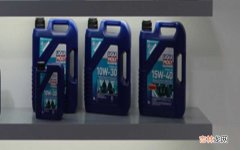原文:
Enhancing Emotional Wellbeing with Plant Cells
文章图片
Turmeria Zen from turmeric stem cells acts against stress wrinkles and significantly increases the wellbeing and hydration of stressed skin, say Vytrus.
ABSTRACT
Stress has an impact on skin and general appearance that ranges from dryness or wrinkles to more serious conditions, such as psoriasis or atopic dermatitis. Curcuma Longa (turmeric) callus lysate is a multiactive ingredient from turmeric stem cells that acts against stress wrinkles, working as an emotional wellbeing manager and as a modulator of the brain-skin connection. Several in vitro, ex vivo and in vivo assays were carried out to demonstrate the efficacy of the active ingredient.
Traditionally, the skin reactions targeted by cosmetic products have always been linked to external factors, physiological reasons, molecular interactions or biomedical causes. Nowadays there is a new holistic approach, considering how humans are affected by emotions and specifically how negative emotions have an adverse impact on skin. This has given place to psycho-dermatology, which considers all aspects of brain-skin interaction.
Stress, tiredness and lack of sleep all affect our skin in many ways. Our immune system is disturbed, making the skin more vulnerable and causing both inflammation and dehydration. More wrinkles appear, while existing wrinkles become deeper; there is a loss of elasticity, a delay in wound healing, damage to skin structure and a decrease in barrier function. In severe cases, it can even result in atopic dermatitis, psoriasis or acne.
There is indeed a relationship between the skin and the nervous system, both cell types coming from the same embryonic tissue. Psychosocial stress has an immediate impact on skin because of the action of excess stress hormones that are released, altering skin homeostasis.
Cortisol is one of the key hormones in the stress response and, when accumulated on skin, it can cause physiological disruptions. It is important to highlight the key role of this hormone as a stress mediator. Stress-related hormones directly affect the water balance of the skin and ultimately the appearance and deepening of wrinkles.
Curcuma longa (turmeric) is a tropical and sub-tropical plant characterised by very ramified cylindrical and orange rhizomes. These are modified roots which act as storage resistance organs. They grow very long and have excellent regenerative properties. Rich in diarylheptanoids (mainly curcumin), Curcuma longa is the most studied plant in biomedicine, with huge potential due to its multiple properties (antioxidant, antiinflammatory, wound healing, antimicrobial, DNA protection, etc.).
Plant stem cells rich in stress-related factors
Vytrus simulated what happens in stressed skin, using turmeric cell cultures, and treated them with plant stress hormones with a cortisol-like effect. This causes the plant cells to produce a defensive cocktail of molecules, such as diarylheptanoids and phytosterols (mimicking the effect of cortisol in the skin). The cell cultures were simultaneously stressed osmotically, hindering the uptake of water to the cell (water management), which also happens in stressed skin.
【the国际资讯 | 用植物细胞增强情绪健康】Under these stress factors, the plant cell cultures of turmeric generate a specific plasma rich in cell factors (PRCF) to protect themselves. Vytrus Biotech has developed this as an active ingredient called Turmeria Zen? (INCI: Curcuma Longa (Turmeric) Callus Lysate), which is hereafter referred to as turmeric lysate.
This active is the concentrated metabolome from Curcuma longa totipotent cells. It is rich in stress-response cell factors that are specially designed to act synergistically against stress in our brain-skin connection. It also represents a new activity profile for the species, while being 100% natural origin according to ISO 16128, COSMOS-approved and free from preservatives, GMOs, BSE, gluten, palm oil, cosmetic allergens, CMR ingredients, nanomaterials and VOCs.
经验总结扩展阅读
- 因为璟美国际:年龄可以隐藏起来,但千万不要让自己的倦容影响气质
- 永久栖桐国际:女人最厉害的武器,就是用美丽武装自己~
- 科技尚研国际丸碧品牌以实体经济见证成长,以科技创新助力发展
- 地方女大学生拍毕业照忘化妆,成片出来后成“全场最佳”,凸显国际化
- 永久璟美国际:时光必会善待努力的人,请加油吧
- 凉水有几个夏日精简护肤tips,缔纳国际陪你变美
- 保健不同肤质夏日护肤,缔纳国际有新招
- 才会栖桐国际|留住容颜,挽住时间,做最美的自己
- 因为璟美国际:天生励志是少数,颜值还得靠你自己!
- 国际栖桐国际|美丽是长在肌肤上的智慧












